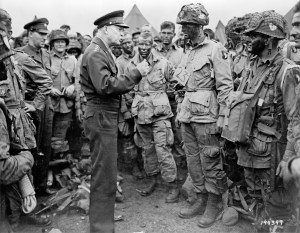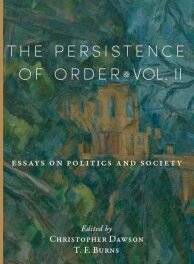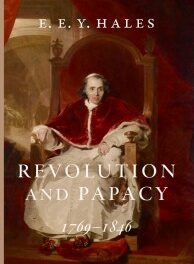We support our Publishers and Content Creators. You can view this story on their website by CLICKING HERE.
We cannot run away from human life because we are human, and yet, precisely in attempting to run away from human life we cease to be human, we become cowards. The martyrs were much more careful of the supreme act of fortitude. They were the supremely brave men of our race; they continue to be a graphic statement of the human need to face issues, even when those issues are roaring lions.
A Companion to the Summa, Volume III: The Fullness of Life, by Walter Farrell, O.P. (Cluny Media, 418 pages)
Dreaming has played its constant part in the life of men from the very beginning. For the most part it has always been considered a luxury to be saved for the odd moments of life. The man who spent most or all of his time in dreams was decidedly an exception; he was a man apart, sometimes looked upon kindly, sometimes not so kindly. And it is a not inconsiderable compliment to the non-dreamers among men that so few of the dreamers have starved to death.
Much of human progress has been due to the long dreams of far-seeing men—translated into action by the non-dreamers—but for the most part men have concentrated much more on the present than on the future, there have always been more laborers than seers, more realists than idealists. In a way this was an inevitable corollary of the recognition of the fact that there is always considerable difficulty in the business of living humanly. At times men have exaggerated that difficulty to such a degree as to drive themselves to despair; but from the beginning men saw the fundamental necessity of facing life’s difficulty. They saw clearly the need of something within a man that would ward off the threat to the humanity of man’s life and actions, for they were keenly aware of the positive existence of such threats.
The depth of this universal conviction is seen from the fact that the particular virtue by which man wards off such threats—the virtue of fortitude or courage—has given its name to all the virtues. The Latin and Greek words for “virtue” also mean fortitude or strength; in fact, going a little deeper, we find that the word itself is sprung from the same root from which, in both Latin and Greek, we derive the word man. It would seem that there was a kind of identification of manhood with courage. When we push the etymological investigation a little further and discover that from these same roots came the words for robustness, virility and even the name of the god of war, there can be no doubt that the men of antiquity believed that humanity and strength were inescapably linked.
In this sense the virtue of fortitude or courage is the oldest of the virtues. It was one of the virtues immediately recognized as such by all men; and that recognition has left its permanent mark both upon the life of man and the human accounts of virtue. All this discussion of words and their roots is not merely academic; it is a testimony to two fundamental truths of human life: that courage is necessary for human life, human action and human responsibility, and that cowardice is a denial or an escape from humanity.…
For fortitude or courage is a virtue, and like all the moral virtues it is ruled by reason. If given a choice it would prefer to have a little time to think and prepare for the dangers it is about to face. Yet an emergency, which gives no time for thought, is one of the best tests of courage. Given time enough, even men without the virtue of courage might possibly fortify their souls against danger; but in the split second given for action in an emergency, our nature and that second nature we have built in through habit come instantly to the surface. A hero is not made on the instant that he leaps to rescue a child from an onrushing truck. He is made in the long, slow years before, while courage was being grafted on his very nature through the formation of habit.
However, martyrs are found not only in arenas, armies, persecutions; they are to be readily found in much less-publicized activities. An obvious example of our own day is that of the Christian mother who will not countenance the destruction of her unborn child as a means of preserving her own life. Or, again, there is the Catholic wife who refuses, in defense of justice and purity, to stoop to perversions of nature, even though such things might ward off a serious threat to her life.
An American magazine recently published the results of a scientific canvass of American women as to their attitude towards birth control and their reasons for their attitude. Among reasons offered in defense of the practice were economic considerations, the fear of giving birth to defectives, the desire to give better education to their children, the refusal to have children until they could be better taken care of, and so on. The significant thing about this list of causes is that it contains no mention of personal fear—the fear of pain, of loss of beauty, of death. The reasons not alleged are even more significant than those that are given.
They give a modern picture of a very old thing. The martyr stood in the arena before thousands and his courage left the bitterest of his enemies in a kind of awe. The coward hides his cowardice and leaves even himself ashamed. The brave man is a conqueror; the coward is conquered by fear. The coward slinks away, without engaging in battle, to a defeat that robs him of a chance to lead a human life; he capitulates before the obstacles that must be removed before the march of life can get under way. Moreover, he knows he has been defeated. He knows that the contempt of men for his cowardice is but a vague hint compared to the roar of disapproval that must come from his inner self. He is in perpetual hiding, even perpetual hiding from himself.
It is not, of course, wrong to feel fear. A good ghost story should cause goose flesh and shivers; a mysterious noise at night might well make our knees knock and our teeth chatter. There are things that should be feared, things like snakes, broken legs and tornadoes; but we should fear those things reasonably, not suffering damnation in an attempt to escape snakes. For if, feeling fear as every man does, we allow that fear to take command of our action, then we are cowards.
If we have no fear at all, something is lacking in us. We may be freaks. We may be too thick-headed to appreciate the danger, so stupidly puffed up as to think nothing can hurt us, or so devoid of love that we do not care what is taken from us. In any case we are not more human, but distinctly less so for our fearlessness. We have no cause for pride or boasting; rather, we have something to be ashamed of, something that must, at all costs, be kept from the children.
Only a superficial examination can mistake rash boldness for bravery. There is as much difference between the recklessly daring and brave men as there is between the brave and the cowardly. Both the coward and the reckless one have allowed reason to crumble before the onslaught of passion; one makes a man run away, while the other makes a man rush to attack. But both prevent a man from being human here and now. Both have cut off human living at one of its starting points.
Summing up this chapter, we can say that it takes courage to be human. It takes even more courage to be Catholic. And it takes still more courage to reach those sublime heights of Catholicism which are called sanctity. Or, to put it another way, courage is necessary for the practice of virtue. As a man becomes more and more virtuous he faces more and more difficulties and so needs more and more courage. Man needs courage to face human life, for human life cannot be lived without virtue, without good habits, without reason being in command. By Catholic life a man steps above the limits of mere humanity; he must not only be human now, thoroughly human, he must be divinely human; his ends are no longer the ends, of mere man but the ends of God. Courage, in a word, is not a momentary stop at the important way stations of life’s beginning and its end; it is a virtue that is progressively more necessary as life advances, as life becomes more full, more successful.
The tragedy of fearlessness lies in its inability to see the necessity for any courage because of an inability to see any difficulties, any dangers, anything that needs to be feared. The fearless man is really a little worse off than the coward. The coward, at least, realizes the need of courage along with his realization of his own lack of it; the fearless man not only lacks courage, he does not realize his deficiency, and would not trouble his head about it if he did.
Fortitude, then, is progressively more necessary as we approach the heights of human life. There is progress in cowardice, too, but it is a burrowing into the depths rather than a scaling of heights. Its first stage might be called factual cowardice, the cowardice involved in fear, sin, irresponsibility, but coupled with the admission that all of these things are wrong, irrational. It is the cowardice of the Catholic succumbing to sin, but admitting that he is committing a sin.
The next step down may take some considerable time for it involves a denial that fear, sin, irresponsibility, are wrong, irrational, cowardly. Sometimes this is merely a case of rationalization, of excusing ourselves even to ourselves; though we never quite succeed in completely convincing even ourselves. In our own day another step has been taken to a philosophical denial of the principles that make these things wrong, of the principles that make courage itself necessary; and that means, ultimately, a denial of the principles that make human life possible.
It is no longer a shock to hear the spiritual character of man’s soul denied; his free will and his consequent possibility of sin are constant subject matter for denials, as also are eternal life, eternal rewards, eternal punishment. Plumbing still deeper into individual life, the significance and responsibility of human action itself is called into question; it is made an animal act or a mechanical reaction, but is not allowed to remain the action of a human being. Finally the individual human life itself is embroiled in a mass movement of some kind or another, that robs it of any importance, of any significance, of any hope.
We can actually trace those steps of cowardice historically. The pre-Reformation abuses were evidences of factual cowardice; next came the Reformation denial of theological truths and the modern denial of philosophical truths; the third and final step was taken in the modern mass ideology that has completely swallowed the individual.
These steps of cowardice are so many stages in man’s flight from his humanity. Actually the coward can never escape. Both the moderns and the martyrs are in the same arena of human life; and the modern coward has no more chance to escape from human life than the martyr had to escape from the lions. The obvious difference between human life and the lions of the arena is that the lions would devour the martyrs whether they ran or not, whereas human life devours only those who attempt to run from it. There is an odd paradox here: We cannot run away from human life because we are human, and yet, precisely in attempting to run away from human life we cease to be human, we become cowards. The martyrs were much more careful of the supreme act of fortitude. They were the supremely brave men of our race; they continue to be a graphic statement of the human need to face issues, even when those issues are roaring lions.
Republished with gracious permission from Cluny Media.
Imaginative Conservative readers may use the code IMCON15 to receive 15% off any order of not-already discounted books from Cluny Media.
The Imaginative Conservative applies the principle of appreciation to the discussion of culture and politics—we approach dialogue with magnanimity rather than with mere civility. Will you help us remain a refreshing oasis in the increasingly contentious arena of modern discourse? Please consider donating now.
The featured image is “Christ Disputing in the Temple” (1545) by Jacopo Tintoretto, and is in the public domain, courtesy of Wikimedia Commons.

 Conservative
Conservative  Search
Search Trending
Trending Current News
Current News 






